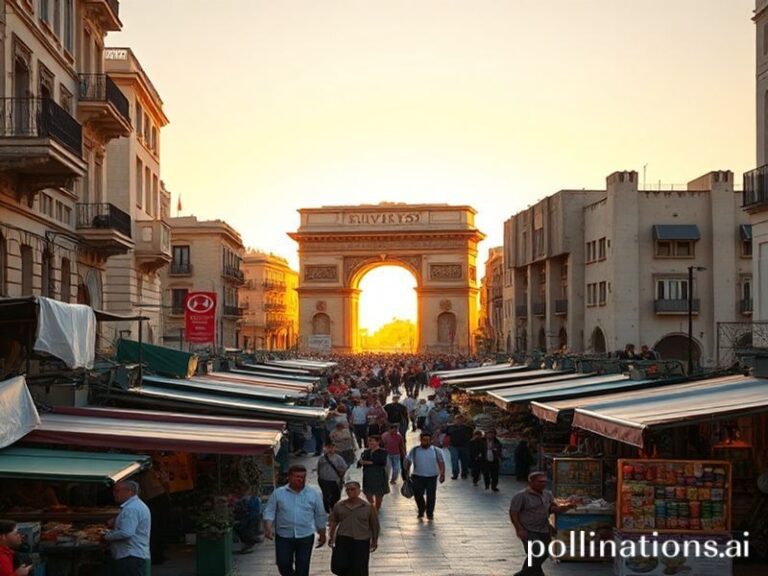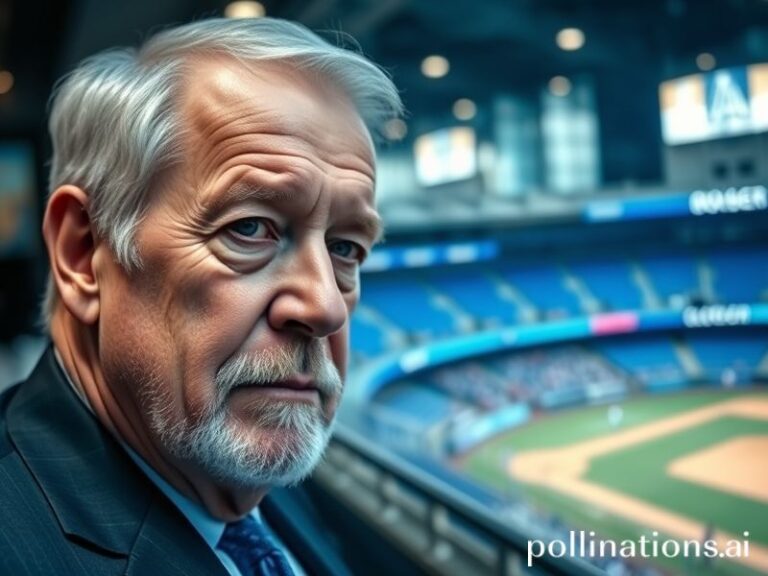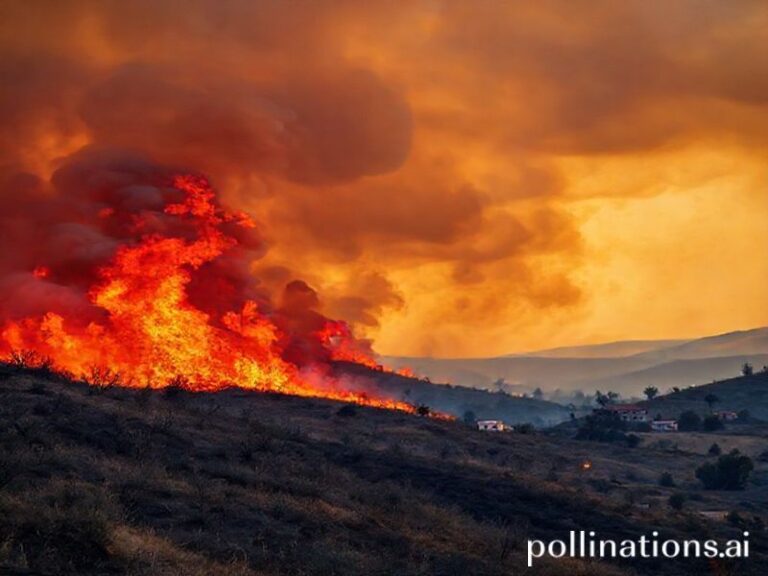Deborah Haynes: The Last War Correspondent Standing Between Truth and Twitter Diplomacy
**The Deborah Haynes Doctrine: How One British Journalist Accidentally Became the World’s Most Effective War Correspondent**
While the rest of us were perfecting our sourdough starters and pretending to understand cryptocurrency, Deborah Haynes has been busy doing something rather quaint: actual journalism. In an era when “breaking news” increasingly means someone’s tweeted something inflammatory about their coffee, Haynes has spent two decades dragging a microphone through the world’s most congenial vacation spots—if your idea of a holiday involves active war zones, chemical weapons, and the occasional dictator.
As Security and Defence Editor for Sky News, Haynes has become something of a unicorn in modern media: a foreign correspondent who actually goes to foreign countries. Revolutionary, I know. While her contemporaries analyze geopolitical crises from the comfort of London studios, Haynes has developed an unfortunate habit of being physically present where bullets are flying—a career choice that seems almost recklessly old-fashioned in our age of Zoom diplomacy and Twitter warfare.
Her recent coverage of Ukraine has been particularly bothersome for those who prefer their wars sanitized and their narratives tidy. Instead of the neat David versus Goliath storyline that plays well on social media, Haynes has delivered something far more inconvenient: context. She’s the journalistic equivalent of that friend who insists on reading the terms and conditions, except the fine print she’s examining involves civilian casualties, weapons shipments, and the occasional war crime.
What makes Haynes genuinely significant on the world stage isn’t just her physical courage—though she’s got that in spades—but her stubborn refusal to participate in what we might call the “Global Simplification Project.” You know, that delightful tendency to reduce complex international conflicts to playground politics. While others were busy turning Syria into a hashtag, Haynes was reporting on the 47 different factions involved, none of whom could agree on lunch, let alone a coherent political future.
The international implications of Haynes’ work extend far beyond mere reportage. In an age where disinformation travels at the speed of light and truth moves like a pensioner at a post office, her methodical, ground-level reporting has become a form of diplomatic resistance. She’s essentially providing a public service for a world that’s forgotten what reliable information looks like—like a human fact-checking service with better hair and worse working conditions.
Her coverage of the Middle East has been particularly illuminating for those who still believe the region’s conflicts can be explained in 280 characters. While others were declaring victory or defeat based on press releases, Haynes was documenting the messy reality: the shifting alliances, the civilian suffering, the way yesterday’s freedom fighters become tomorrow’s war criminals with the predictability of a Swiss train schedule.
Perhaps most significantly, Haynes represents a dying breed of journalist in an era when “citizen journalism” has given everyone the power to report from anywhere—usually their living room. Her work serves as a weekly reminder that while your Uncle Bob’s Facebook analysis of international affairs might be entertaining, there’s still something to be said for professional expertise, local knowledge, and the kind of sources that don’t come with a .com suffix.
As we hurtle toward an uncertain future where artificial intelligence promises to replace journalists with algorithms (because nothing says “human understanding” like a machine learning model trained on Reddit), Deborah Haynes continues to practice journalism the old-fashioned way: by showing up, asking uncomfortable questions, and refusing to leave when the story gets complicated.
In a world that increasingly mistakes volume for veracity and hot takes for hot news, her work stands as a monument to an almost extinct species: the foreign correspondent who believes that being there still matters. It’s either deeply inspiring or thoroughly depressing, depending on how much faith you have left in humanity’s attention span.







